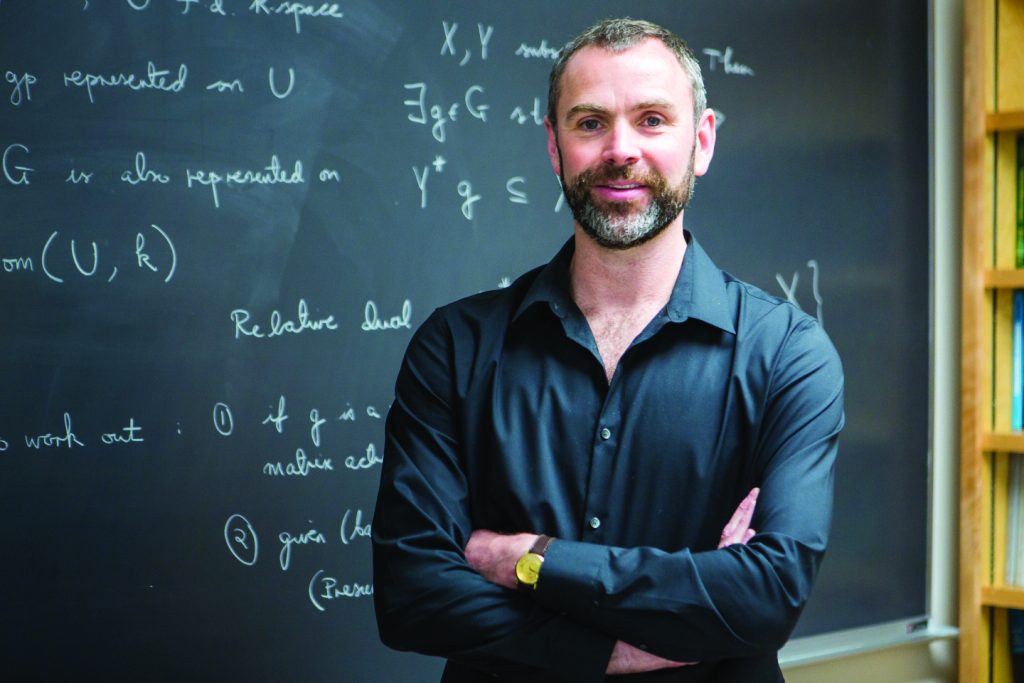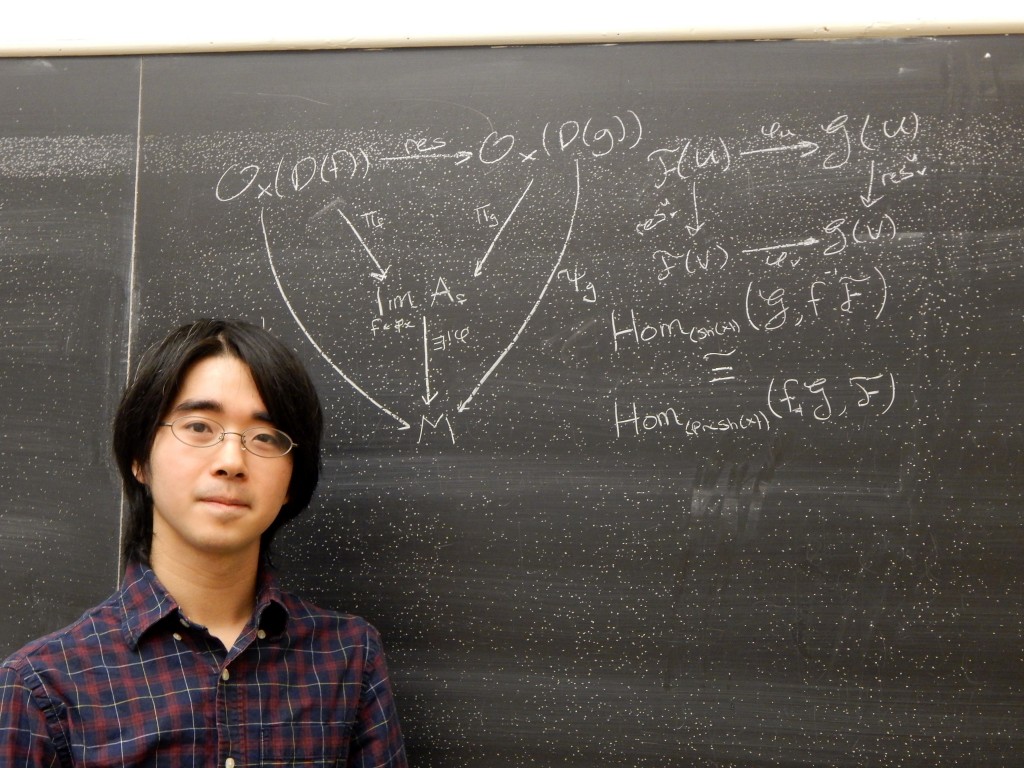April 9, 2015 – The National Science Foundation (NSF) has awarded Allegheny College senior Erin Brown an honorable mention in the prestigious NSF Graduate Research Fellowship Program, which provides fellowships to individuals selected early in their graduate careers based on their demonstrated potential for significant achievements in science and engineering.
Additionally, Brown, a physics and mathematics double major with an English minor, has received the 2015-16 Enhancing Diversity in Graduate Education–in science, technology, engineering and mathematics (EDGE-STEM) Doctoral Fellowship at Stanford University. She was nominated for this award by the Stanford School of Engineering based on her record of extraordinary academic accomplishment and her potential to contribute to the diversity of her program and academic field.
The EDGE-STEM fellowship will provide Brown with a stipend and research and travel funds when she begins Stanford’s Ph.D. program in Computational and Mathematical Engineering in the fall. She hopes to someday teach and conduct research at the university level.
“Receiving these recognitions is a great honor. Allegheny allowed me to become involved in research during my freshman year, which I believe helped me get all the opportunities I’ve had,” says Brown, who has researched “Mathematical Sciences – Computational and Data-enabled Science,” meaning she uses math and theory to develop new computational techniques, particularly for understanding the brain. “I’ve also benefited from active mentorship in the physics and math departments. I believe the College has prepared me well for my next chapter at Stanford.”
These are not the first honors for Brown. In 2014, she received a Goldwater Scholarship, which is awarded to only 300 students annually, from an applicant pool of 1,200 to 1,500. The prior year, she received a Goldwater Scholarship honorable mention.
“Erin’s accomplishments say it all; she clearly has a first-rate scientific mind,” says Patrick Jackson, Allegheny national fellowships adviser and visiting professor of religious studies and history. Jackson works with students who are applying to external fellowships.
Brown, from Gainesville, Ga., has served as president of the Allegheny Society of Physics Students. She has worked on research projects with professors in the Allegheny physics department and at the Salk Institute for Biological Studies in La Jolla, Calif., through the Howard Hughes Medical Institute Exceptional Research Opportunities Program.
In addition, Allegheny class of 2013 graduate Douglas Barber of Austin, Texas, received an NSF Graduate Research Fellowship. Barber, who is studying geology at the University of Texas at Austin, was one of 2,000 individuals chosen for the Foundation’s Graduate Research Fellowship Program from among 16,500 applicants in 2015. He was a geology major and economics minor at Allegheny.
Allegheny class of 2013 graduates Colleen Friel and Michael Vlah also received NSF Graduate Research Fellowship Program honorable mentions. Friel is studying biology at Michigan State University, and Vlah is studying environmental science at the University of Washington.
With its emphasis on support of individuals, the NSF Graduate Research Fellowship Program offers fellowship awards directly to graduate students selected through a national competition. The program provides three years of financial support within a five-year fellowship period ($34,000 annual stipend and $12,000 cost-of-education allowance to the graduate institution) for graduate study that leads to a research-based master’s or doctoral degree in science or engineering.
Former NSF Fellows include numerous individuals who have made transformative breakthroughs in science and engineering, become leaders in their chosen careers and been honored as Nobel laureates. A complete list of those offered this fellowship for 2015 is available on the NSF website. For general information about the program, go to nsfgrfp.org.
Source: Academics, Publications & Research

